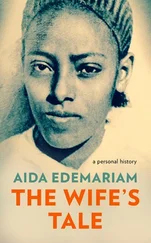He sent her what he had so far written of Vivian Grey , a novel in conscious imitation of Plumer Ward’s Tremaine .
Mrs Austen expressed herself ‘quite delighted’. ‘I have gone through it twice,’ she wrote, ‘and the more I read it the better I am pleased.’ She entered into ‘the spirit of the book entirely’. She was ‘in a state of complete excitation on the subject,’ she wrote later. She was also attracted by its author. ‘Remember’, she wrote to him, sending the letter by a servant as though from her husband, ‘that you have the entrée whenever you like to come – at all hours – in the morn[ing] I am generally alone.’
Disraeli immediately settled down to finish the book – which he dedicated to his father, ‘the best and greatest of men’ – sending it, chapter by chapter, to Mrs Austen who, editing it as she went along, copied it out in her own hand to protect the anonymity of the author who was supposed to be a gentleman well qualified to reveal the foibles and eccentricities of the beau monde. When enough had been written for her to approach a publisher, Sarah Disraeli sent the manuscript to Henry Colburn who, offering £300 for the copyright, made much of the supposed identity of the author. ‘By the by,’ Colburn said one day to the editor of a magazine in which he hoped the novel would be reviewed, ‘I have a capital book out – Vivian Grey . The authorship is a great secret – a man of high fashion – very high – keeps the first society. I can assure you it is a most piquant and spirited work, quite sparkling.’ 19
The story is to a considerable extent autobiographical: Vivian Grey is the son of a literary man with a huge private income; he leaves school to read in his father’s library; he sets out to impress the politically influential and treacherous Marquess of Carabas, whose resemblance, in certain respects, to John Murray, the publisher himself found insupportable and, in the end, unforgivable.
The first part of Vivian Grey was published on 22 April 1826 and reviewed at length by William Jerdan in the Literary Gazette , a magazine of which he was editor. The book sold well and was, in general, favourably reviewed, although Jerdan maintained that the anonymous author knew too little about society to have had much experience of it himself and too much about the literary world about which the ‘mere man of fashion knows little and cares less’.
Everyone was talking about the book, Plumer Ward told Sara Austen. ‘Its wit, raciness and boldness are admired’; and it became a kind of literary game to identify the models on which various characters were based. Lord Brougham, George Canning, Lord Eldon, Lady Caroline Lamb, John Murray’s German sister-in-law Mrs William Elliot, Harriot Mellon, the actress, wife of the banker Thomas Coutts, the playwright Theodore Hook, and J.G. Lockhart were all identified as being represented or caricatured in the book – as well, of course, as John Murray, the Marquess of Carabas, whose loquacity in his cups is clearly based on Murray’s:
Here the bottle passed, and the Marquess took a bumper. ‘My Lords and Gentlemen, when I take into consideration the nature of the various interests, of which the body politic of this great empire is regulated; (Lord Courtown, the bottle stops with you) when I observe, I repeat, this, I naturally ask myself what right, what claims, what, what, what – I repeat what right, these governing interests have to the influence which they possess? (Vivian, my boy, you’ll find the Champagne on the waiter behind you.) Yes, gentlemen, it is in this temper (the corkscrew’s by Sir Berdmore), it is, I repeat, in this temper, and actuated by these views, that we meet together this day.’ 20
Murray threatened to go to law and might well have done so had not his friend, the solicitor Sharon Turner, advised against it. ‘If the author were to swear to me that he meant the Marquess for you,’ Turner assured Murray, ‘I could not believe him. It is in all points so entirely unlike.’ But Murray was unconvinced. He never invited Isaac D’Israeli to 50 Albemarle Street again; and never published another of his books. He turned his back on him and Mrs D’Israeli when he came across them in the street.
When the authorship of Vivian Grey became generally known, comment about it was far more wounding than it had been when Henry Colburn first published it. Instead of the well-informed authority which readers had been led to believe its author was, he was now revealed to be, in the words of Blackwood’s Magazine , ‘an obscure person, for whom nobody cares a straw’. He was, in fact, ‘a swindler’ in the words of the Literary Magnet , ‘a swindler – a scoundrel – a liar…who, having heard that several horsewhips were preparing for him…had the meanness to call upon various persons who have been introduced in Vivian Grey , and deny, upon his honour as a gentleman , that he was the author of the book’.
Disraeli was particularly upset by the review in Blackwood’s , and in a later novel he described his feelings upon reading it: ‘With what horror, with what blank despair, with what supreme appalling astonishment did I find myself for the first time in my life the subject of the most reckless, the most malignant and the most adroit ridicule…The criticism fell from my hand…I felt that sickness of heart that we experience in our first scrape. I was ridiculous. It was time to die.’ 21
In the face of such attacks as that in Blackwood’s , Disraeli fell ill. ‘ What is the matter? ’, Sara Austen, who was by now half in love with him, wrote anxiously. ‘My shaking hand will tell you that I am nervous with the shock of your illness…For God’s sake take care of yourself. I dare not say for my sake do so…If without risk you can come out tomorrow, let me see you at twelve or at any hour which will suit you better. I shall not leave the house till I see you. I shall be miserably anxious till I do. My spirits are gone till you bring a renewal of them.’ 22When his doctor advised him against going out, Mrs Austen suggested that he went abroad for a time with her husband and herself.
Affecting to make light of the attacks on him and his book, Disraeli wrote to Austen’s husband facetiously suggesting that, although he had left his last place ‘on account of the disappearance of the silver spoons’, he defied anyone to declare that he was not sober and honest, except when entrusted with the key of the wine cellar, when he had candidly to confess that he had ‘an ugly habit of stealing the Claret, getting drunk and kissing the maids’. 23
Despite the frivolous tone of this letter, Disraeli was deeply upset by the attacks to which he was subjected, not so much those upon his book as those upon him personally. He affected to be little concerned now or later about these attacks and allowed a new edition of the book, edited by his sister, to appear in 1853, maintaining most improbably that the characters in it were not drawn from life. Yet in the summer of 1826 he fell into an even deeper depression. He spent much of each day in his bedroom in Bloomsbury Square with the blinds drawn. On the verge of a nervous breakdown such as his father had once suffered, he welcomed the Austens’ suggestion that they travel abroad together.
‘I feel now that it is not prejudice when I declare that England with all her imperfections is worth all the world together.’
HAVING READILY ACCEPTED the Austens’ suggestion of a Continental holiday, Disraeli was equally ready to borrow the money to pay for it and, having made arrangements to do so, he wrote the first of his reports describing his journey to his father on 9 August:
Читать дальше











